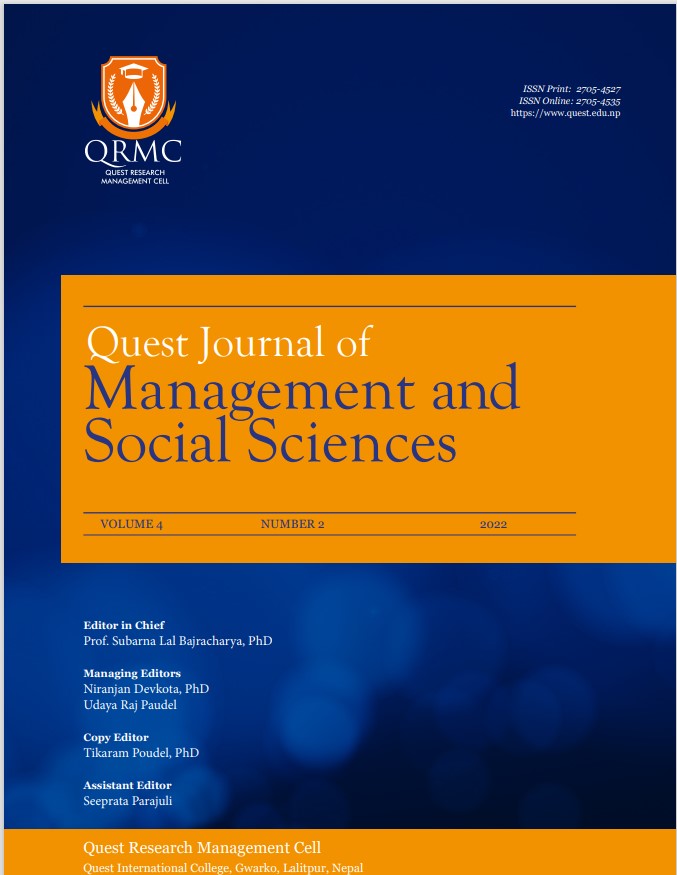Social and Environmental Accountabilities of the Nepalese Cell Phone Operators
DOI:
https://doi.org/10.3126/qjmss.v4i2.50317Keywords:
Organisational performance, Performance measures, Social and environmental concerns, Telecom industryAbstract
Background: Social and environmental accountabilities are the ideas of individuals/organisations working for society to maintain economic and environmental equilibrium. Society's perception of organizations is shaped by how they report on their social and environmental effects.
Objective: This study aimed to examine the impression of social and environmental indicators concerning organizational performance from the perspective of the customers of Nepalese mobile phone service providers.
Materials and Methods: The study employed a stratified non-probability sampling technique and collected primary data from 329 GSM users of the Nepalese cell phone operator companies with an organised survey questionnaire. The survey questionnaire contained 17 questions about demographic and general information, social and environmental impressions, and organisational performance. The study variables' questions were organised with a 6-point Likert-type scale and employed structural equation modelling and path analysis to get the study's objective.
Results: Two observed variables out of five within the social performance (β = 0.812, p < 0.01) and all four observed variables within the environmental performance (β = 0.972, p < 0.01) significantly contributed to social and environmental performance. The social and environmental performance with six observable and two latent variables had a substantial influence (β = 0.877, p < 0.01) on organisational performance.
Conclusions: The study presents a new subjective lens and an approach for recognising, analysing, and spreading social and environmental impacts. It expands the scope of performance evaluation by focusing on social and environmental variables generally overlooked by businesses, particularly in Nepal.
Limitations/Recommendations: This analysis was limited to GSM service and based on primary data by covering a single-dimensional performance metric. The study's outcomes can generate opportunities for building more appropriate non-financial performance metrics impacting organisational performance.
Originality: This paper has not been published elsewhere.
Downloads

Downloads
Published
How to Cite
Issue
Section
License
Copyright (c) 2022 Quest Journal of Management and Social Sciences

This work is licensed under a Creative Commons Attribution-NonCommercial-NoDerivatives 4.0 International License.
This license enables reusers to copy and distribute the material in any medium or format in unadapted form only, for noncommercial purposes only, and only so long as attribution is given to the creator.



